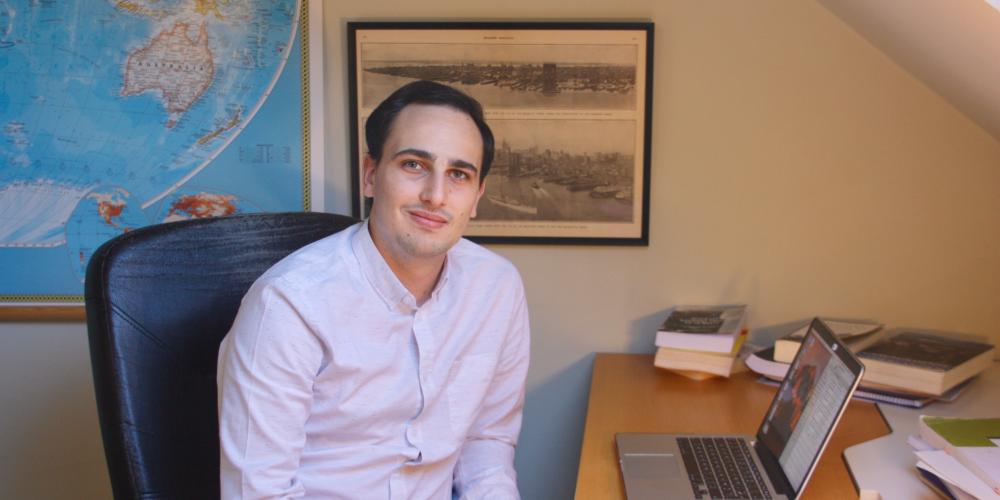
VUB-alumnus en voormalig studentenraadslid Yannis Skalli-Housseini is voor zijn academische prestatie aan de London School of Economics and Political Science (LSE) bekroond met de Iris Forrester Prize for Excellence van het Departement Internationale Geschiedenis. Hij studeerde er met een onderscheiding en een van de hoogste gemiddeldes af in de ‘MSc Empires Colonialism and Globalisation’. Na zijn verblijf in Londen keert hij nu terug naar de VUB, waar hij eerder dit academiejaar lid werd van de onderzoeksgroep HOST als doctoraatsstudent rond het project ‘Fiscaal beleid en sociale ongelijkheid in de 18de-eeuwse Oostenrijkse Nederlanden (1749-1794), begeleid door prof. dr. Wouter Ryckbosch. Yannis zegt zelf zeer blij te zijn terug te keren naar zijn Alma Mater en “in het bijzonder de vakgroep geschiedenis die me gemaakt heeft tot de historicus die ik vandaag ben”.
PhD-project
Yannis will study the social effects of taxation in the early-modern period. He likes to quote the Austrian economist Joseph Schumpeter who wrote the following words some hundred years ago: “The spirit of a people, its cultural level, its social structure (…) all this and more is written in its fiscal history, stripped of all phrases. He who knows how to listen to its message here discerns the thunder of world history more clearly than anywhere else.”
Fiscal policy and history have become fashionable once again thanks to economists like Thomas Piketty. Yet much remains unknown about the social effects of taxation in early-modern societies. How regressive were fiscal systems? And when did economic inequality become an issue for governments, if at all? What were, in short, the origins of, and obstacles to, equitable taxation in the modern world.